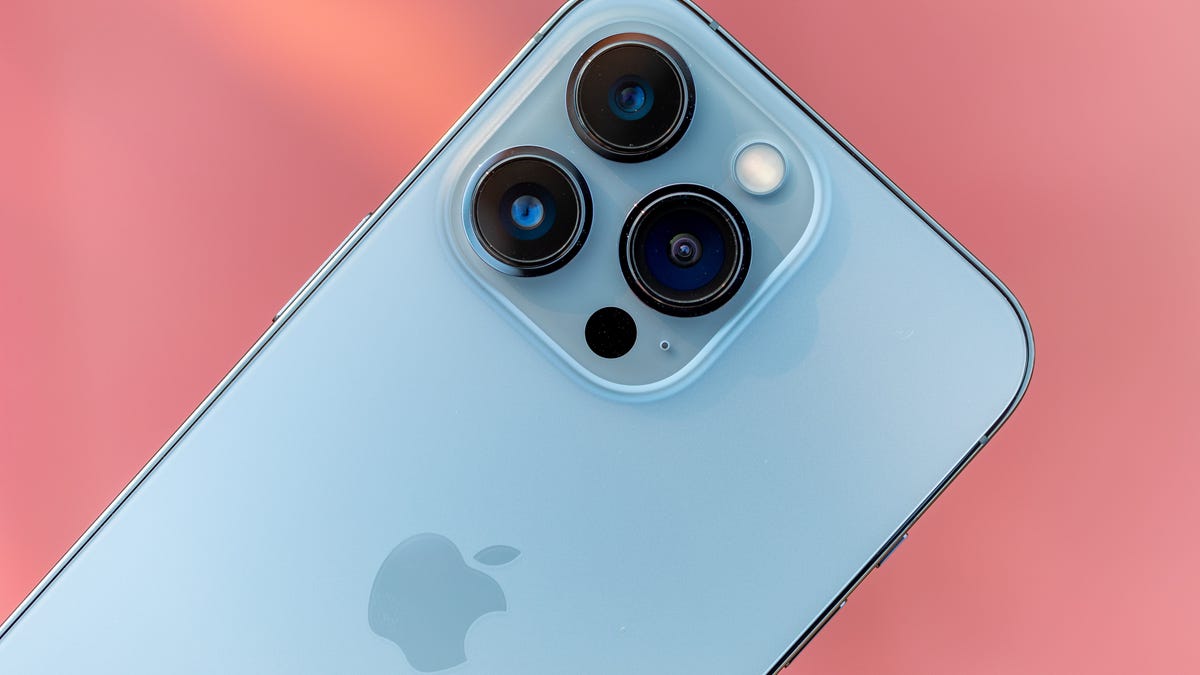Apple is about to tell us if the iPhone 13 can be an even bigger hit than the iPhone 12
Last year's iPhone led to Apple's largest revenue and profit ever. Apple watchers will be looking for any signs of a repeat.

The iPhone 13 Pro.
Rather than an eye-catching new design or a major upgrade beyond superfast 5G wireless, Apple's new iPhone 13 focuses on less flashy upgrades like better cameras, higher-quality screens and longer battery life as its key selling points. And on Thursday, Wall Street will get its first glimpse at whether that's enough to excite customers.
That's when Apple is due to announce results for its fiscal fourth quarter and to report other data, such as how well its Macs, iPads and Apple Watches are selling. And though the three months between July and September aren't closely watched, in part because Apple's biggest sales happen during the holidays, they'll give a sense of how popular its latest product lineup is turning out to be.
Analysts expect the company to report $1.24 per share in earnings and $84.85 billion in sales, according to averaged surveys published by Yahoo Finance. Those numbers amount to substantial jumps from the 73 cents per share and $64.7 billion in sales Apple reported a year ago, caused in part by the delayed release of last year's iPhone and slowed laptop and desktop sales ahead of new Mac computers. Both products went on to push sales and profits for the nearly $2.5 trillion company to their highest-ever totals.
So far, signs are that Apple has another winner on its hands for this year. Reviewers like CNET's Patrick Holland called the iPhone 13 "a delightful upgrade" ahead of its release last month. And TF International Securities analyst Ming-Chi Kuo said initial preorders appeared higher than those for last year's model, largely "in line with market expectations."
Apple's new MacBook Pro lineup, announced earlier this month, introduces extra ports, magnetic charging and other features long requested by fans.
Tech investors won't be the only ones closely scrutinizing Apple's numbers, though. The company's reports have for years been seen as bellwethers for the larger consumer electronics world, in part because it's such an influential company and the world's most valuable. In the past year, Apple's reports have taken on even more significance as companies large and small have grappled with supply shortages. Microchips in particular have been scarce, leaving companies like Sony and Ford unable to build enough PlayStation 5 video game consoles or popular F-150 trucks.
Apple, which has long been well regarded for its supply chain acumen, has fared better than most amid the chaos. The tech giant was among the first to warn of disruptions from COVID-19, back in February 2020, a month before the pandemic was declared. And though it's struggled to keep up with demand, Apple was able to build enough of its products over the past year to continue posting better-than-expected sales.
Morgan Stanley research analyst Katy Huberty sent a note to investors last week saying that despite "recent negative supply chain headlines," her team doesn't expect dramatic shortfalls in Apple's product supply.
More clues
Apple used its last few quarterly financial conference calls to give some outlook on how the pandemic continues to affect its business. In the summer, for example, executives warned that supply shortages were keeping the company from producing enough iPad tablets and Mac computers.
"The majority of constraints we're seeing are of the variety that I think others are seeing," Apple CEO Tim Cook said on a July 27 conference call, while also reporting double-digit jumps in sales of iPhones, iPads and Mac computers. "We do have some shortages," Cook said, but he added that Apple is likely less affected than some other companies because it's using chip designs that are more cutting edge.
Apple CEO Tim Cook was one of the first business leaders to publicly raise concerns about COVID-19.
On Thursday, it's likely he'll offer similar insights about Apple's product lineup as the company moves toward the holidays.
"The elephant in the room for Apple (and every other tech and auto player) heading into the conference call remains the chip shortage crunch and what impact this global logistics Rubik's Cube will have on iPhone builds and shipments for holiday season," Wedbush analyst Daniel Ives wrote in a research report last week.
But, he added, Apple has the "high class" problem of demand outstripping supply as users continue upgrading to 5G wireless, causing what analysts call a "supercycle" of upgrades. "We view near-term supply chain issues as nothing more than a speed bump on a multi-year supercycle," Ives wrote.

